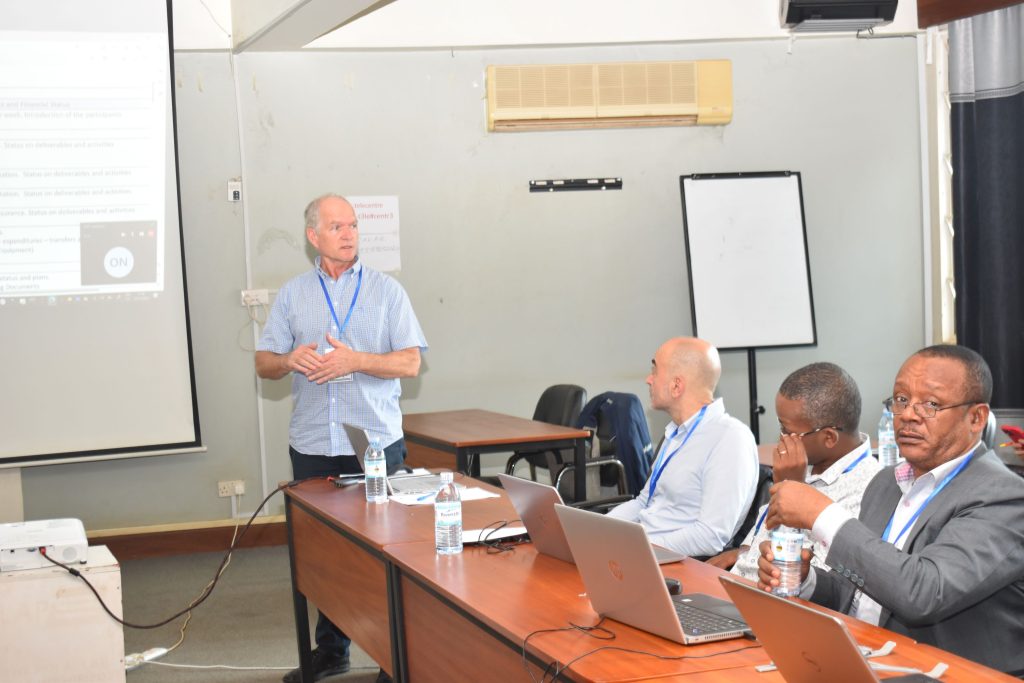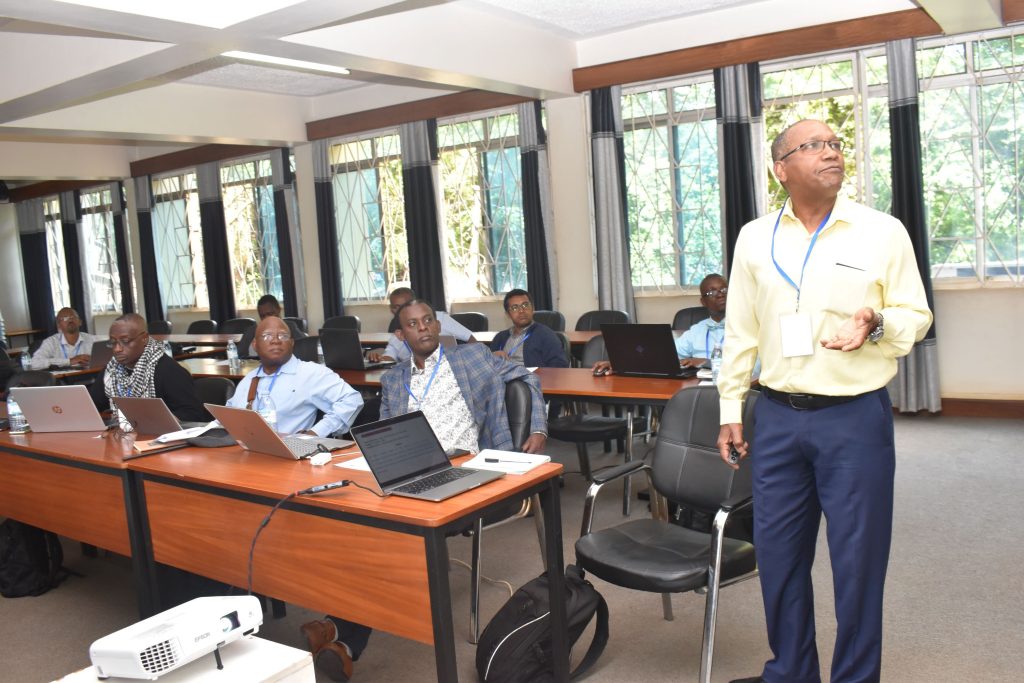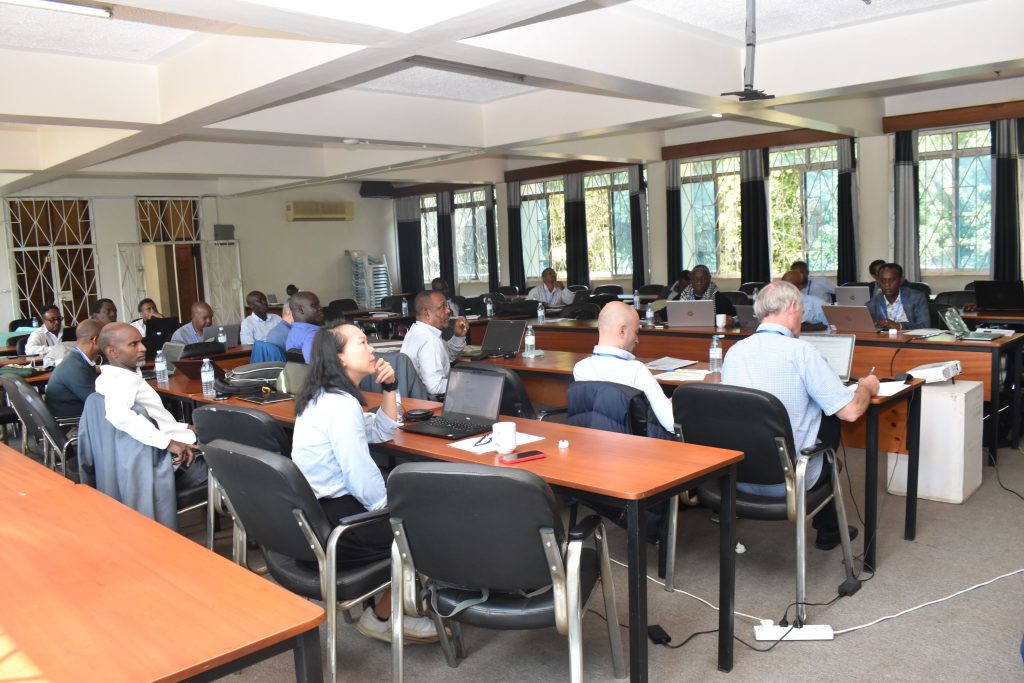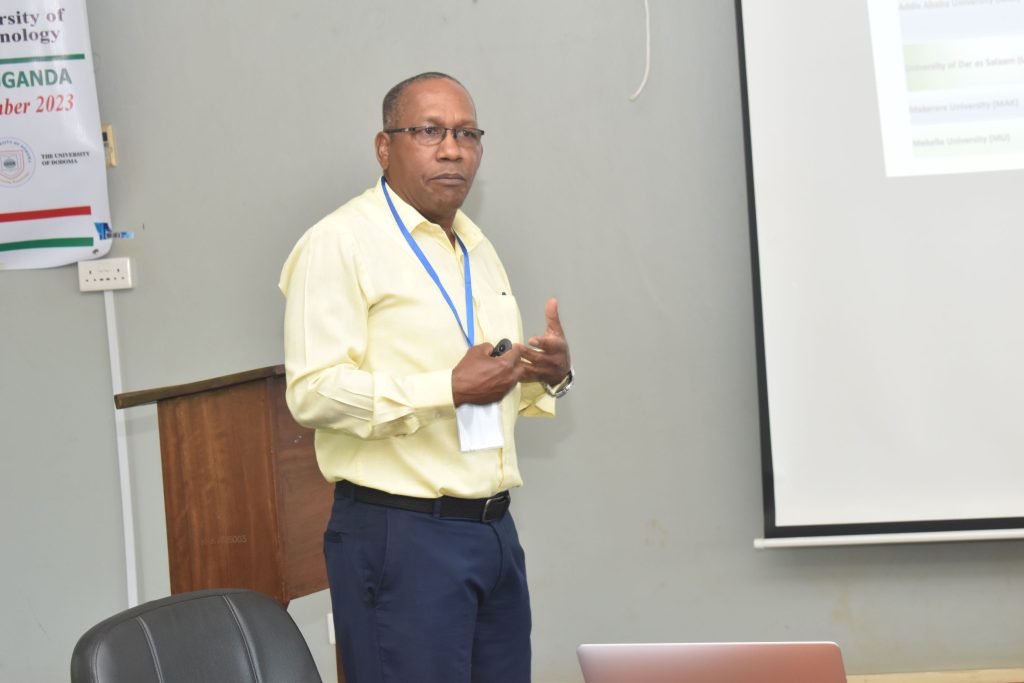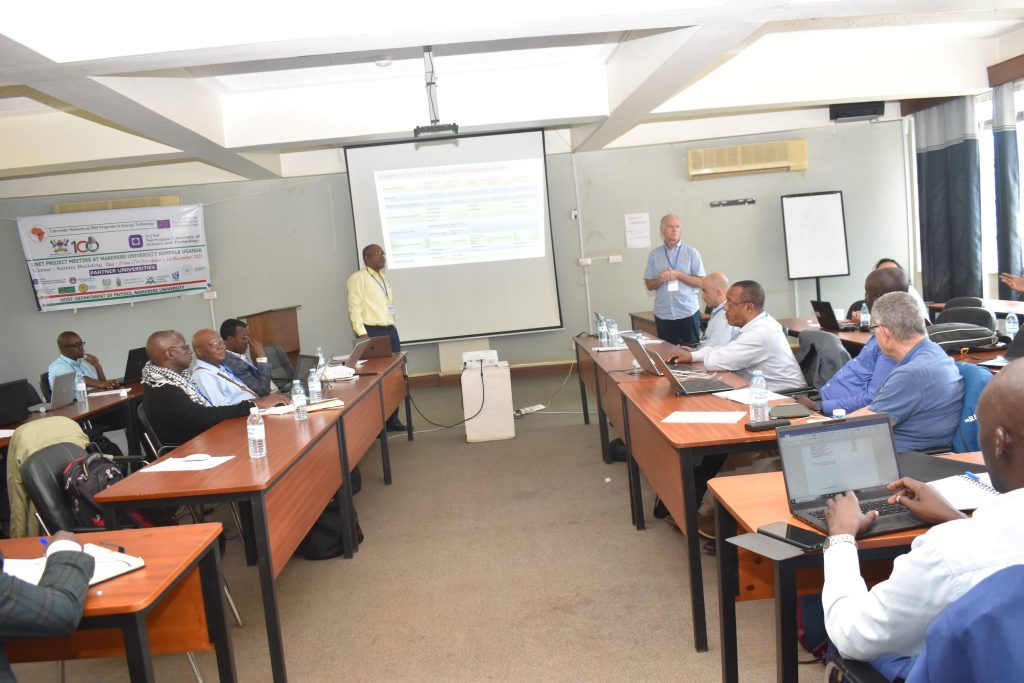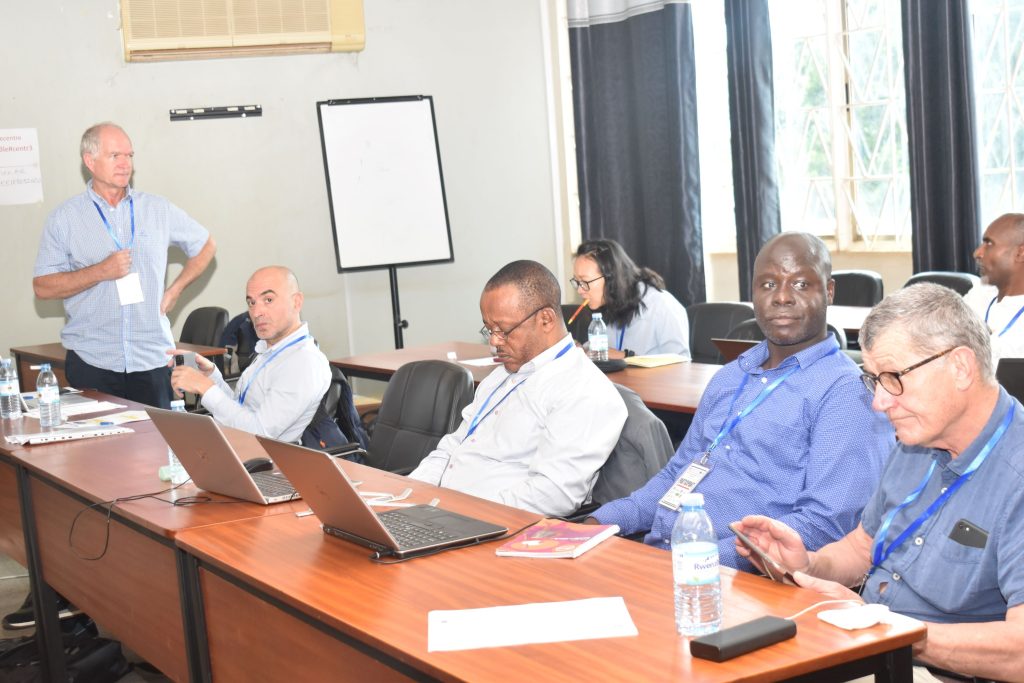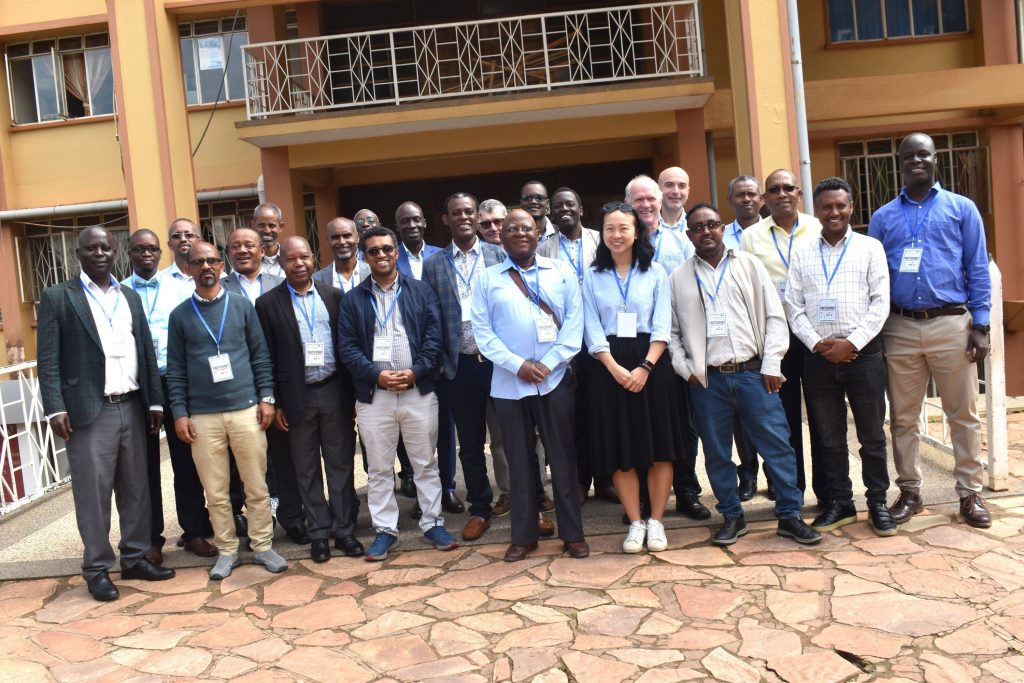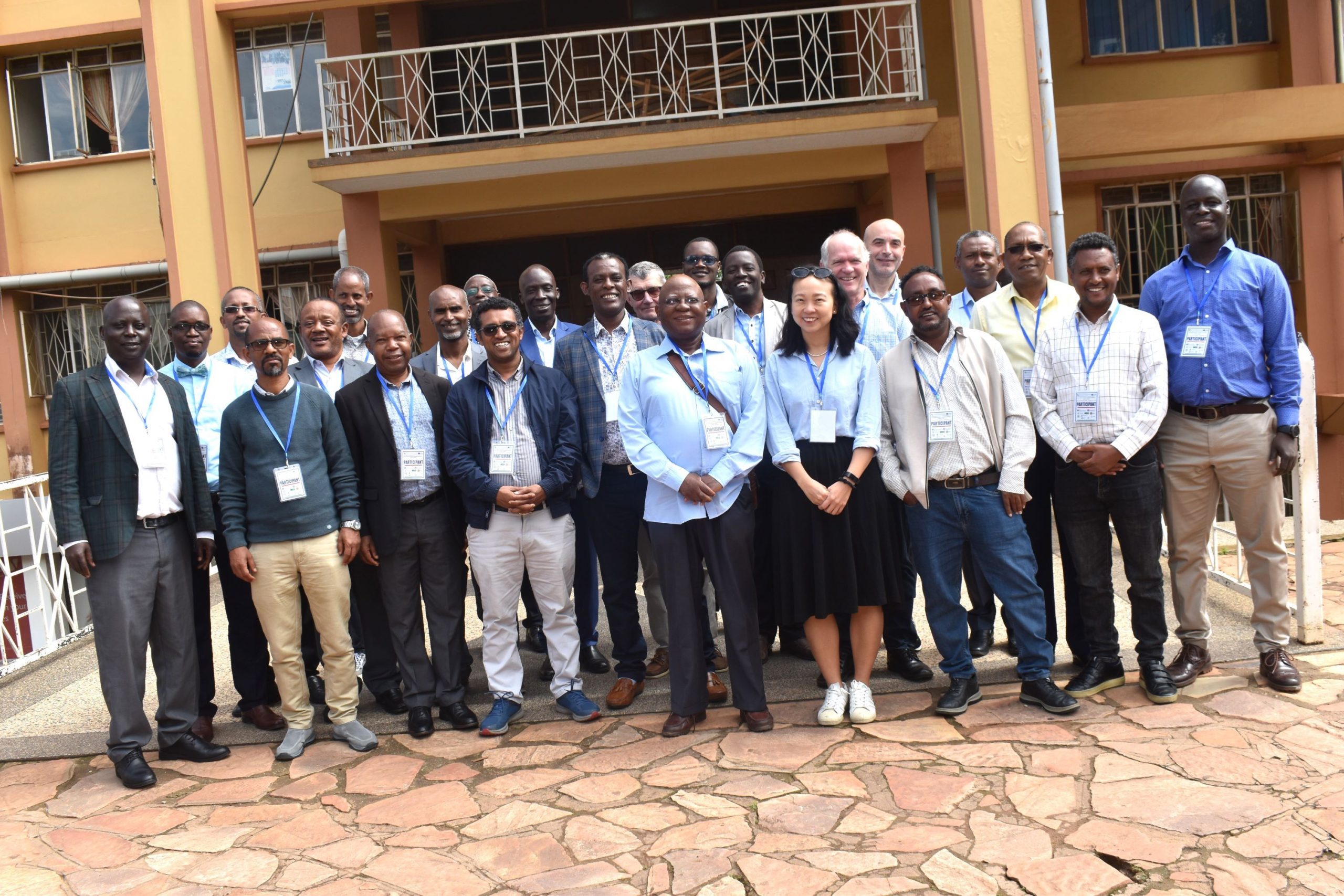The UNET Project team at Senate Building, Makerere University on 27th November 2023. The team will be meeting for five days starting 27th November-1st December 2023 to among other issues, finalize the development of course materials and plan for 2024.
***** Co-funded by the Erasmus+ Programme of the European Union, University Network on PhD Programmes on Energy Technology (UNET) is a project focused on taught PhD programmes in energy especially in science and engineering fields among universities in the partner countries.
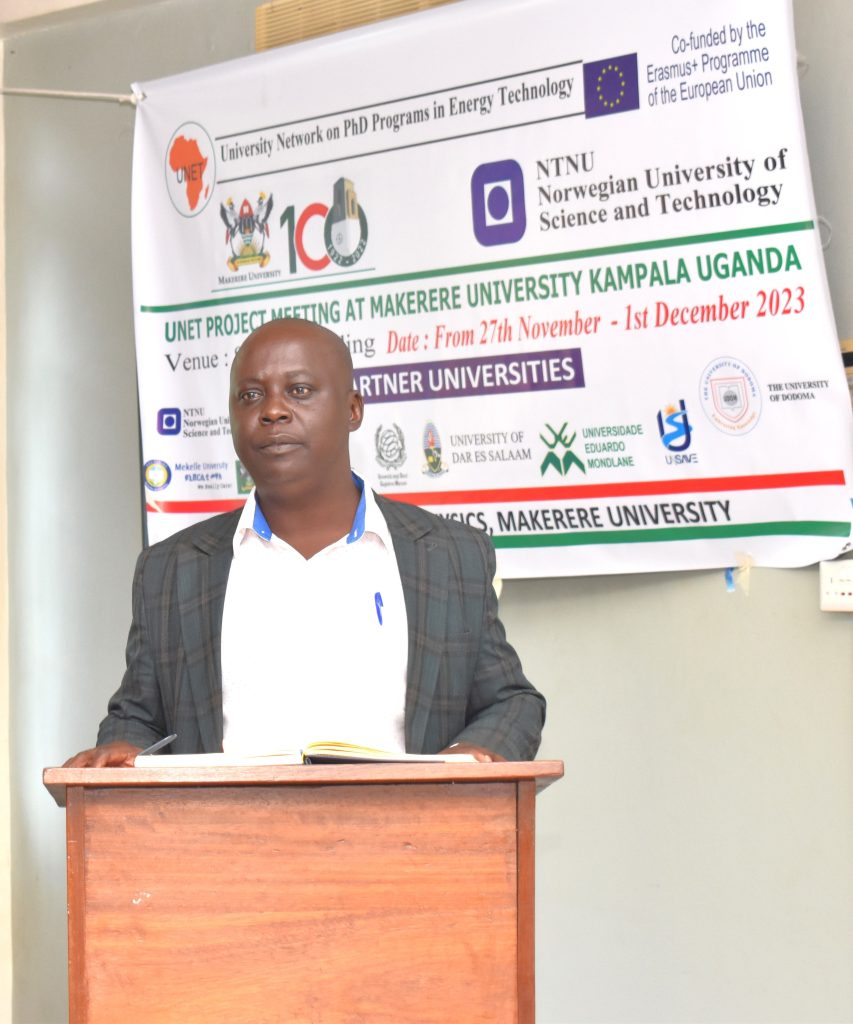
About the 6th Workshop
Makerere University Department of Physics is hosting the 6th Workshop of the UNET Project. The five-day workshop (27th November- 1st December 2023) taking place at Senate Building, Makerere University builds on Workshop 5 held in Addis Ababa, Ethiopia and is intended to finalize the development course materials in energy and plan for the remaining implementation part of the project. It is being coordinated by Dr. Nyeinga Karidewa and Mr. Jimmy Chicanga from the Department of Physics, Makerere University, as well as Prof. Ole Jorgen Nydal from NTNU. In attendance are representatives from partner institutions, and the Head, Department of Physics, Makerere University, Dr Denis Okello.
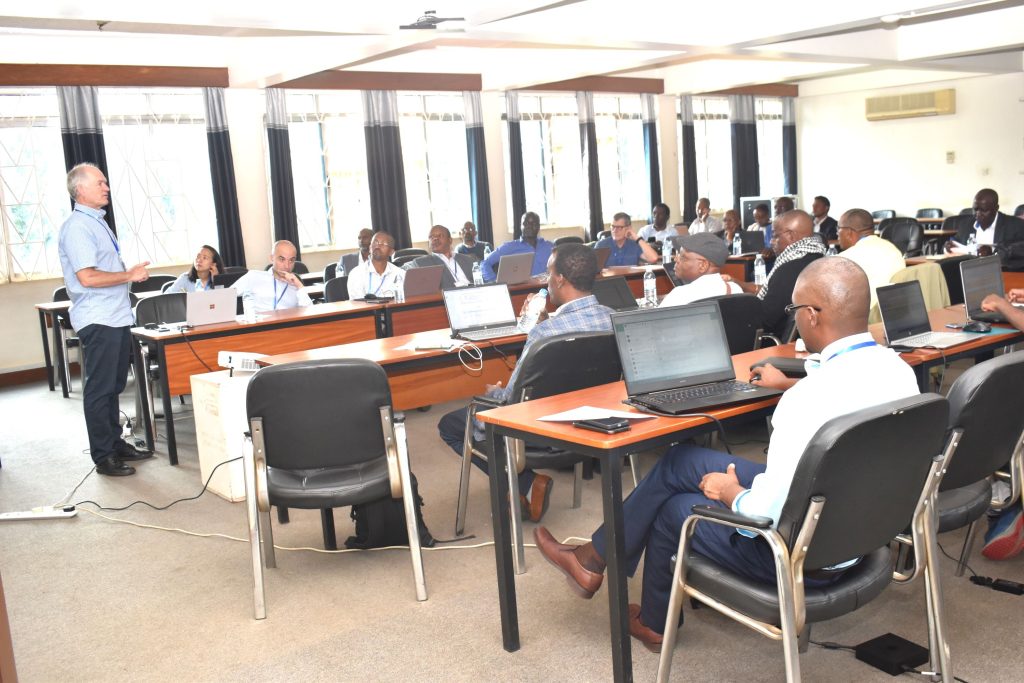
Besides developing the course materials, participants will revise the project budgets and draw work-plans for 2024, including plans for mobility of PhD students in 2024, and acquisition of equipment for the project. The workshop will end with an Annual General Assembly to assess progress.
According to Dr Karidewa, the doctoral programme is designed to teach engineers and scientists all about renewable energy technology. It will give them the skills and information they need to tackle the energy industry’s practical problems and help the community with energy production, distribution and use.
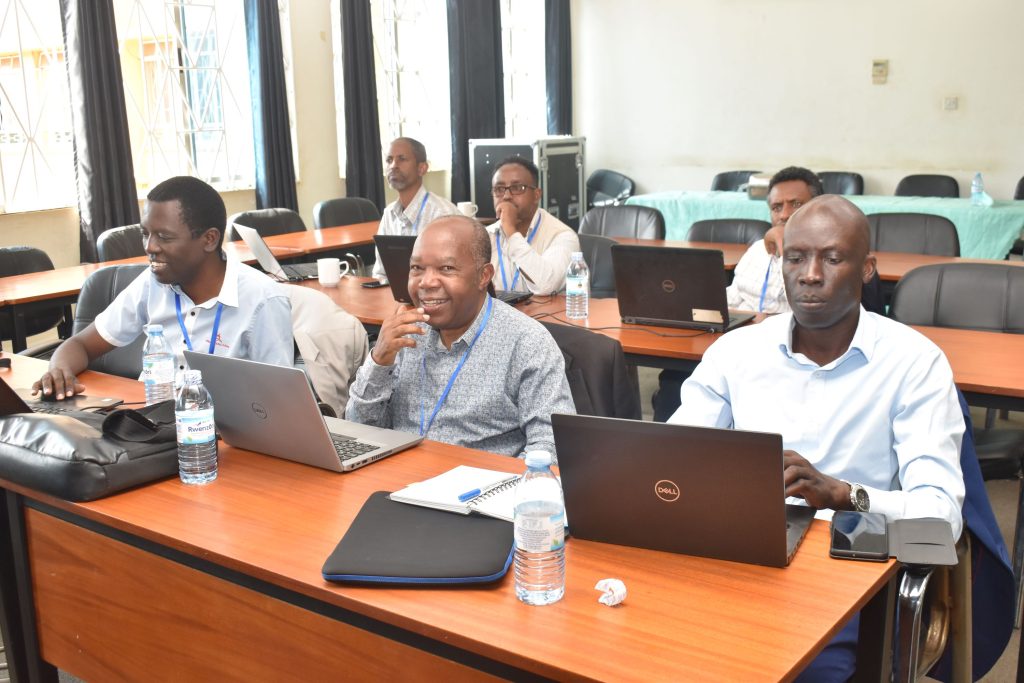
About UNET
UNET is a project focused on taught PhD programmes in energy especially in science and engineering fields among universities in the partner countries. It is co-funded by the Erasmus+ Programme of the European Union. The project supports collaborating universities to migrate from purely research-based PhD programmes towards taught based PhD programmes with mandatory coursework, similar to EU standards. The reform aims to improve the quality of research output and facilitate the successful completion of the PhD studies within their nominal study period.
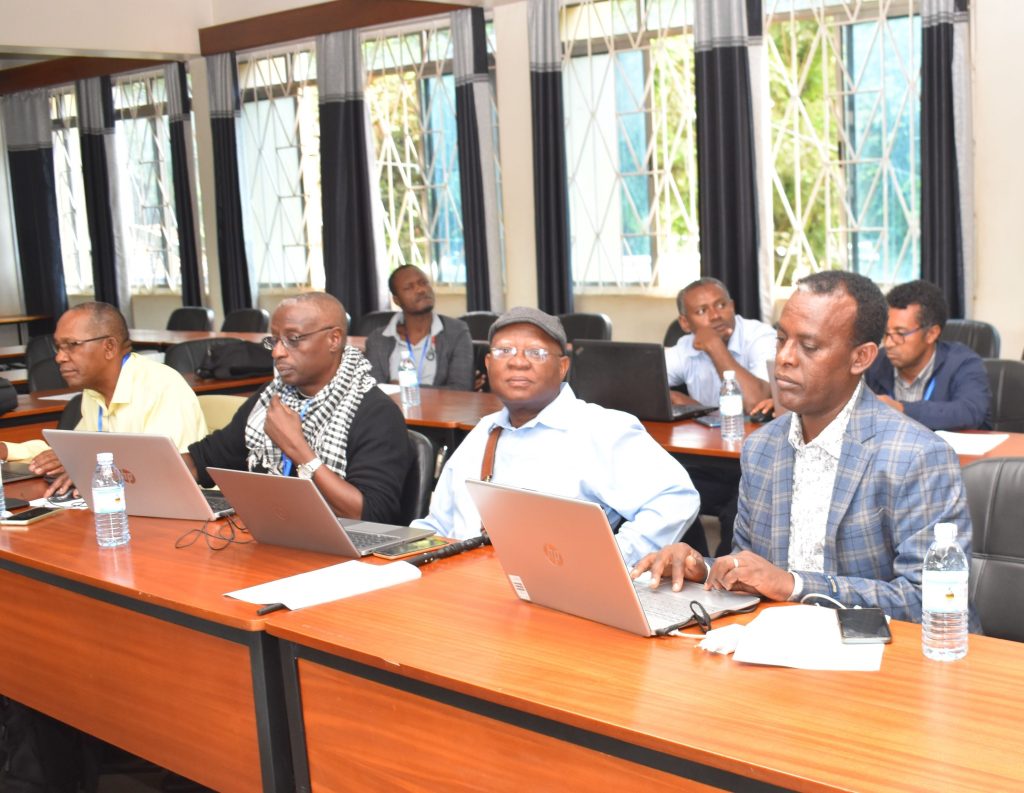
The project is conducted among 10 collaborating universities from different 6 partner countries namely; Ethiopia (Northern Africa), Tanzania and Uganda (Eastern Africa), Mozambique (Southern Africa), Norway and Italy both from the European Union. The 10 collaborating universities from these partner countries are; Norwegian University of Science and Technology (NTNU), Norway; Università degli Studi Guglielmo Marconi (USGM), Italy; University of Dar es Salaam (UDSM) and University of Dodoma (UDOM), Tanzania; Makerere University (Mak) and Busitema University (BU), Uganda; Addis Ababa University (AAU) and Mekelle University (MU), Ethiopia; and Eduardo Mondlane University (UEM) and Universidade Save (UNISAVE), Mozambique.
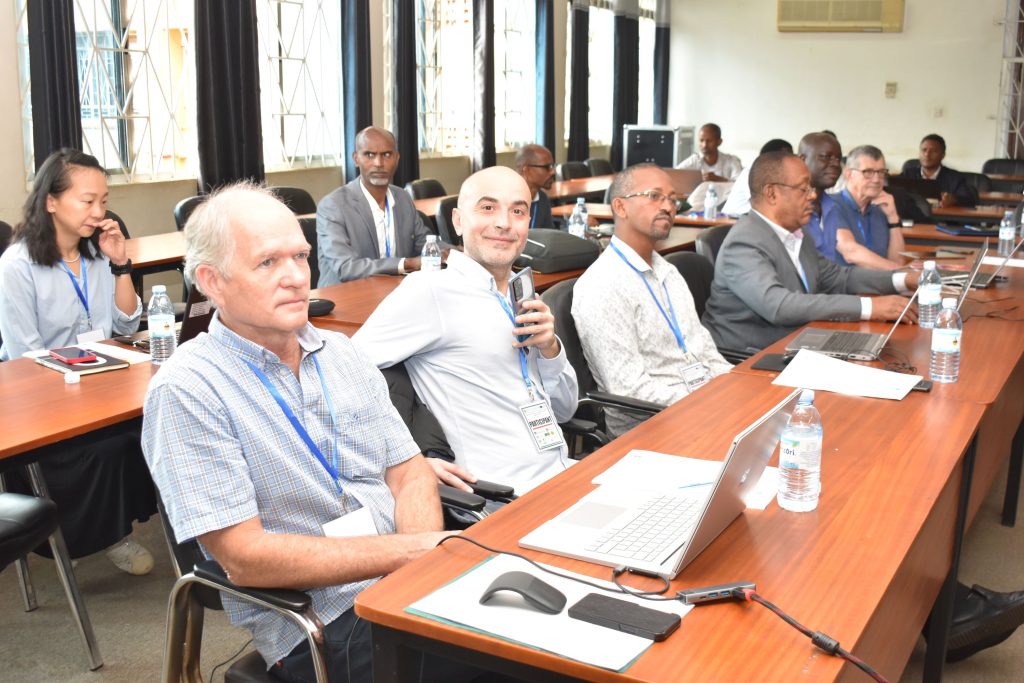
Objectives of UNET
The partners in UNET acknowledge that new energy technology is needed for the transition from fossil fuel to renewable energy sources (RES). Universities can support this transition by providing the manpower and the research needed.
The objective of UNET is to support PhD programmes at the partner universities within the area of Energy Technology. Specific objectives include; i) developing PhD courses in energy, acquiring equipment and improving energy research facilities in the partner universities, and supporting PhD students undertake mobility to partner universities.
